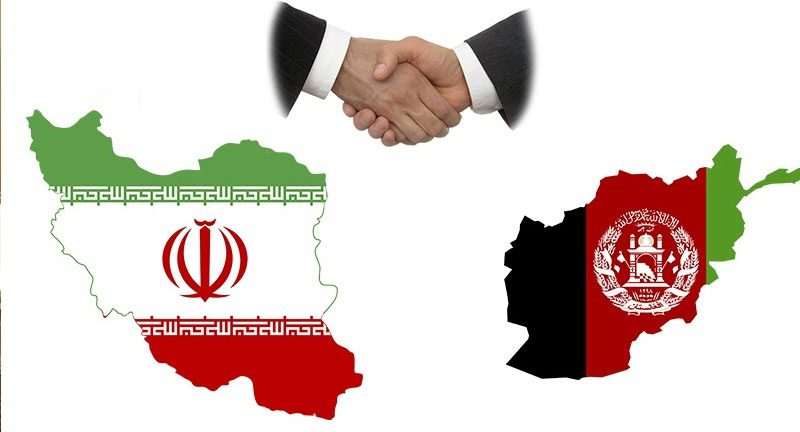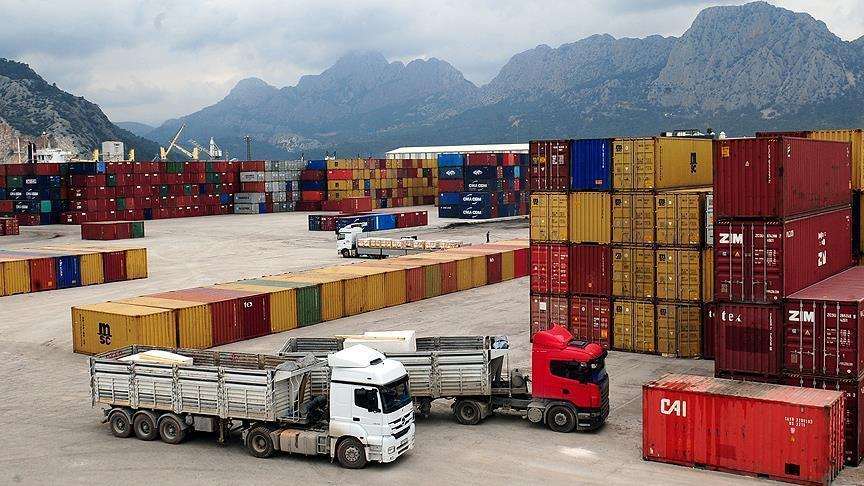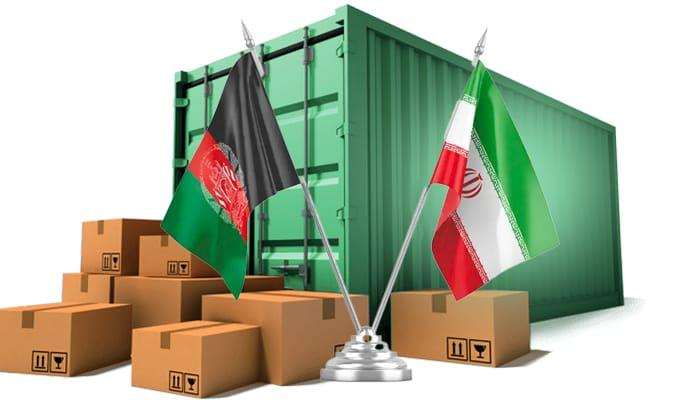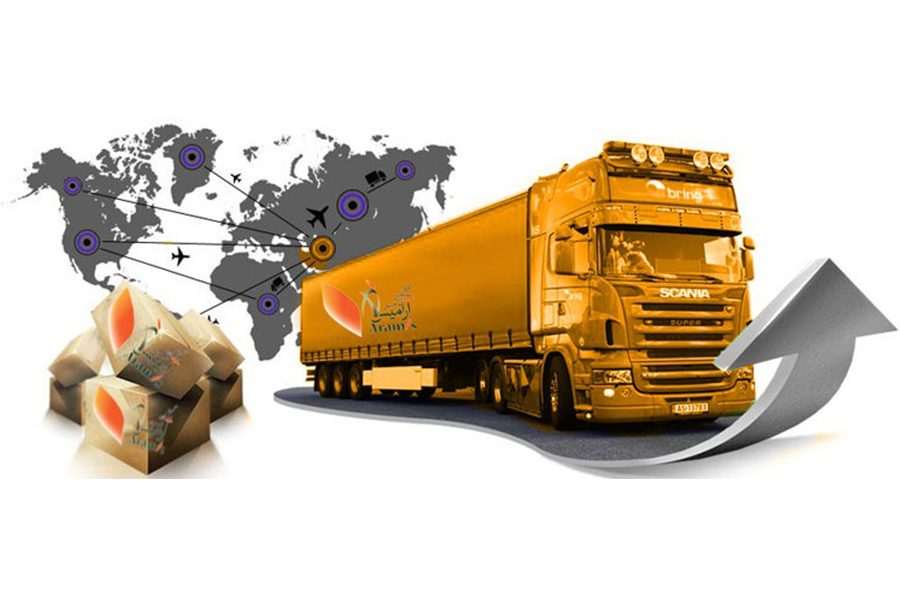Export to Afghanistan

Export to Afghanistan and Their Role in Iran’s Economy
According to published data, Afghanistan is recognized as one of our country’s prominent trading partners. This country constitutes a significant portion of our international trade exchanges and plays an important role in Iran’s foreign trade.
One of the main reasons for the expansion of trade between Iran and Afghanistan is the existence of common cultural, religious, and linguistic ties between the people of the two countries. These commonalities facilitate commercial interactions and allow traders to easily communicate with each other. On the other hand, given Afghanistan’s dry climatic conditions and limited access to free waters, the country faces limitations in producing agricultural and food products. This issue has led Afghanistan to depend on imports from neighboring countries, including Iran, to meet its needs, which in turn has contributed to the increase in the volume of trade and exports from Iran to Afghanistan.
A Summary of Afghanistan’s Economy and Trade Relations with Iran
Afghanistan’s economy, previously affected by war, has seen improvements with the establishment of a new government. The country has recently gained presence in international organizations and attracted foreign investments. Afghanistan, primarily an agricultural economy and not industrialized, relies on imports to meet its industrial needs. The scarcity of water and agricultural limitations have led the country to import most of its consumer goods from neighboring countries such as Iran, India, and Pakistan.
The Most Important Iranian Goods for Export to Afghanistan
Iron or steel bars: With approximately $75 million, they have allocated about 19% of the total Iranian exports to Afghanistan and have the highest buyers in this country. Tomatoes: With a share of 3.9. Fresh apples: With a share of 3.4. Non-velvet floor coverings: With a share of 3.1. Potatoes: With a share of 2.4.
These goods are also among other export products to Afghanistan. Among the most important export goods to Afghanistan, we can mention flour, rice, tea, iron, fossil fuels, steel, various machinery and their equipment, legumes, cereals, various stones, and gypsum.
On the other hand, due to the underdevelopment and backwardness of its industrial and production sector, Afghanistan has a severe need for imports. The economy of this country is more focused on the agricultural and services sectors. Despite all the tensions and internal problems, Afghanistan has managed to have at least a stable situation in many economic indicators and not be too volatile.

Assessment of Export Conditions to Afghanistan
Currently, Iran plays a key role in meeting Afghanistan’s needs, accounting for approximately 17 to 20 percent of Afghanistan’s total imports. This has made Afghanistan one of the main priorities for Iran’s exports.
Factors Influencing Trade Between the Two Countries
The shared land borders and cultural and linguistic ties between Iran and Afghanistan have acted as the main drivers for expanding trade relations. These commonalities enable Iranian traders to optimize their exports with a better understanding of the needs of the Afghan market.
Export to Afghanistan offer numerous opportunities and benefits, some of which include:
- The favorable land routes between the two countries make exporting to Afghanistan easy and fast, which is considered one of the most prominent advantages of this trade.
- The shared land borders and geographical proximity of the two countries are other advantages of exporting to Afghanistan.
- The geographical closeness of Iran and Afghanistan has enabled traders from both countries to be well-acquainted with each other’s climatic, cultural, political, and social conditions.
- The common language between the two nations has enhanced the Afghan people’s awareness and recognition of Iranian goods and products.
- Another key advantage of exporting to Afghanistan is the absence of complex political structures in the country, which has simplified export regulations.”
Although Western countries have also engaged in exporting goods to Afghanistan, the advanced technology of their products naturally raises prices and necessitates the dispatch of technicians for translation and after-sales services, resulting in additional costs for the Afghan government. Consequently, the Afghan government prefers to meet its market needs through neighboring countries such as Iran and Pakistan. Given the superior quality of Iranian goods compared to Pakistani products, trade between Iran and Afghanistan is significantly greater than with other countries.
What goods are suitable for export to Afghanistan?
One of the main concerns for many traders, especially those who are new to the field and have less experience, is determining which types of goods are successful and profitable in the Afghan market.
Currently, given the positive and constructive economic relations between Iran and Afghanistan, a variety of products are exchanged through the shared border crossings of the two countries. Some of the most important export goods to Afghanistan include carpets, building materials such as stone and plaster, foodstuffs, confectionery, sanitary products, electrical cables, various types of bread, and tomato paste. Iranian food and sanitary products are among the best-selling goods in Afghanistan, with people being very satisfied with their quality. However, exports to Afghanistan are not limited to these items. Other export products include:
- Precious stones such as turquoise
- Various building materials
- Petroleum products and fossil fuels
- Mineral stones such as mica, cement, and plaster
- Plastic products and their derivatives
- Vegetables

One of the vital aspects that traders must consider when exporting to Afghanistan is the different customs tariffs for exported goods. The customs tariffs for clearing exported goods to Afghanistan are as follows:
- The customs duties and taxes for exporting machinery and other goods used in domestic production and investment are zero.
- The export of raw materials to Afghanistan is subject to a 1% customs tariff.
- The export of primary materials to Afghanistan faces a 2.5% customs tariff.
- The export of vegetable oils to Afghanistan has a 3.5% customs tariff.
- The export of clothing and precious and ornamental stones to Afghanistan is calculated with a 25% customs tariff.
- And so on.
Step-by-Step Guide to Exporting to Afghanistan
If you are looking to enter the Afghan export market, it is essential to become familiar with the process and stages of exporting to this country. This knowledge is the key to progress and success in this field. Experience is the most crucial element in exporting to Afghanistan; do not assume that you can learn all the nuances and processes related to this trade with just one export attempt. Mastery in this area requires repetition and continuous practice. Also, be aware that the export market is a competitive field, and only those who lead in this competition can achieve success and profitability.
To profit from your trade, you must thoroughly understand the source market. The determining factor for profit is the purchase price of goods in the source country. Finding a reputable seller in the destination country is one of the most important steps in exporting. Exporting to any country requires precise and phased planning, and traders must approach this process with a coherent and principled plan. In addition, leveraging up-to-date knowledge and experience is another requirement for any successful trader.
After understanding the source market and finding a reliable seller, you should focus on the packaging of the product. Proper and attractive packaging not only increases sales but also raises your chances of success in the competitive market. Additionally, insuring exported goods is another vital step. If you are a novice, it is recommended to start with a smaller volume of exports to protect yourself from potential risks and losses.
Advanced Marketing Strategies for Exporting to Afghanistan
Marketing is one of the key stages in the path to commercial success. Participating in international fairs and markets provides unparalleled opportunities to introduce your products and services to the global market. These events, in addition to creating professional connections, also offer the chance to evaluate competitors and better understand customer needs.
Branding is another strategy that allows you to introduce your products to target markets more quickly and effectively. A strong brand attracts customer trust and loyalty and can serve as a symbol of your company’s quality and values.
The quality of export products is the foundation of any successful trade. High-quality products not only keep customers satisfied but also increase the likelihood of their return for future purchases. Ensuring product quality, especially in competitive markets, is doubly important; substandard products can quickly lead to loss of market share and elimination from the competitive cycle.
Furthermore, digital marketing and the use of online platforms such as eWorldTrade, Alibaba, and Tradewheel can help you connect more effectively with customers around the world. Utilizing social networks, websites, and online advertising campaigns provides access to new markets and creates a positive image of your brand.
Finally, attention to innovation and continuous product improvement is among the factors that can distinguish you in global markets. Offering innovative products that meet customer needs positions you as a leader in the industry and allows you to be at the forefront in competitive markets.

Comprehensive Export Process to Afghanistan: Essential Steps for Success
Exporting to Afghanistan, like any other business process, requires following precise and professional steps. Here, a broader perspective on the export steps is presented:
Professional Marketing: Accurate market and target audience knowledge is the first step in introducing your products and productions. Using modern and digital marketing techniques can ensure your brand’s visibility in target markets.
Issuance of Proforma Invoice or Preliminary Invoice: This document specifies the terms of sale and product details and is the basis of commercial negotiations between the seller and buyer.
Professional Packaging: Product packaging should not only protect the goods from potential transport damage but should also be designed to showcase the attractiveness and value of your brand.
Goods Valuation: The customs valuation of goods by the Customs Tariff Commission, which is based on international laws and regulations, is of high importance.
Obtaining Necessary Permits: Obtaining approvals and necessary permits from relevant organizations and institutions is essential to ensure that goods comply with required standards.
Customs Declaration of Goods: This stage involves registering goods information and related documents in the customs system and performing legal formalities.
Contracting with Transportation Companies: Choosing a reputable transportation company and signing a contract that guarantees safe and timely transportation is crucial.
Obtaining Goods Inspection Certificate: This certificate confirms the quality and specifications of the goods and ensures that the goods comply with the desired standards.
Shipping of Goods: At this stage, the goods are prepared for transport to the destination country, and the export process is completed.
Remember that each of these steps requires considerable attention and precision, and success in each step contributes to the overall success of the export process. Also, continuous follow-up and accurate evaluation of all processes are of special importance to prevent any problems or delays in the export process.
Tata Trading Company’s Goods Export
Considering the challenges and complexities of the export process, Tata Trading Company, leveraging its extensive knowledge and experience in international trade, is ready to offer advisory and operational services to esteemed companies and merchants. At Tata Trading Company, with innovative and optimized solutions, we guarantee that your goods will be exported in the best possible manner, adhering to all international standards.
We are with you at every stage of the export process, including preparing necessary documents, standard packaging, transportation, customs clearance, and ultimately ensuring the goods reach your customer. Utilizing a vast network of business partners around the world, Tata Trading Company is able to provide the best transportation options for your goods and ensure that they reach your customers on time and without any issues.
By trusting Tata Trading Company, you can focus on expanding your business. For more information and free consultation, please contact us.

